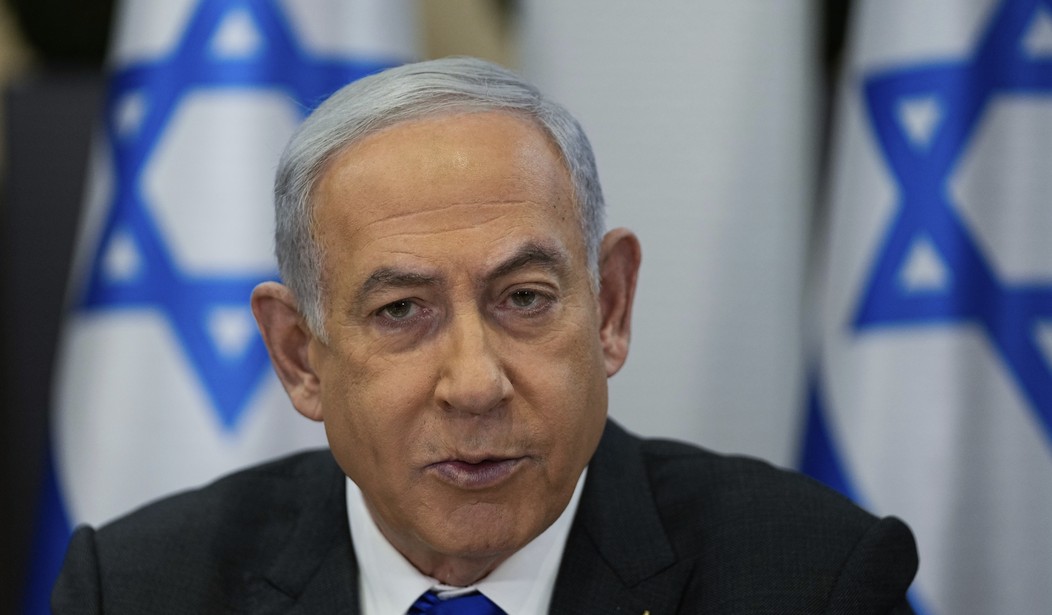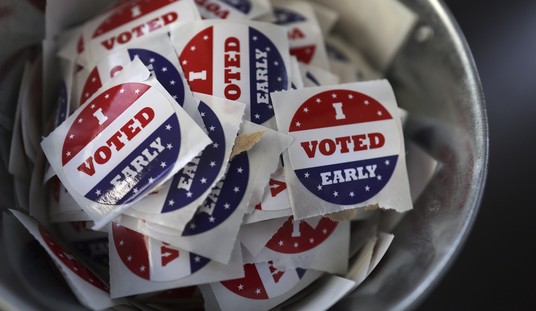Since the founding of Israel in 1948, Orthodox Jews have been mostly exempt from military service. This has been a source of annoyance to many Israeli citizens, but the politics of the issue haven't changed. Haredi parties represent a significant political force in Israel, and are currently a vital part of Prime Minister Benjamin Netanyahu's governing coalition.
Like any minority, Orthodox Israelis find strength in solidarity. They hold 18 seats in Israel's Knesset, and all 18 members are in the position of being able to make or break Netanyahu's fragile hold on power.
This week, they may break that hold and bring the government down.
The proximate issue of contention is the exemption from military service granted to most Orthodox Jews. According to Israeli Defense Forces (IDF) estimates, there are 60,000 young Orthodox men of draft age. As the war against Hamas goes on, Israeli voters are increasingly angry that Orthodox Jews are getting a pass on serving. Some reservists have been called up two or three times, leading to widespread opposition to the exemption.
"The real crisis shaking Netanyahu’s coalition isn’t just religion versus state – it’s the war in Gaza, and who will be forced to fight it. Discrimination against those who serve in the military is one of the few issues that unites a vast majority of Israelis – and they want it to end," writes Haaretz political correspondent Amir Tibon.
The war is dragging Netanyahu's approval down, leaving him vulnerable to his political foes. Now, his opponents in the Knesset believe they have an issue that will bring down his coalition and force new elections.
The Israeli Supreme Court recently ruled in March that exemptions from military service were unconstitutional, and ordered the government to resolve the matter. Netanyahu has been stalling, hoping to keep the Haredi parties happy enough to remain in his coalition until October, when he hopes to hold elections. But the opposition is about to force a vote on conscription next week, and given the unpopularity of the draft exemption even among his own Likud party members, it's likely to pass.
Meanwhile, some of the Orthodox parties are planning a coup of their own.
On Tuesday night, the rabbis who control Agudat Israel and Degel Hatorah, which are allied under a United Torah Judaism bloc, refused to take a call from Mr. Netanyahu. They then announced their support for dissolving the Knesset and forcing a new election. The third Haredi party, Shas, is for now mum.
Led by a veteran politician, Arieh Deri, Shas might join the other Haredi parties. While Shas voters support the draft exemption, though, they’re also “very attached to Bibi,” a top political analyst, Mazal Muallem, tells Kann News, referring to Mr. Netanyahu. Either way, even if just one party of the Haredi bloc votes against the coalition, it could collapse.
Together, that bloc controls 18 of the Knesset’s 120 seats. Mr. Netanyahu’s current coalition is supported by 64 Knesset members. The premier is torn between an unpopular move that would exempt the Orthodox and the need to maintain his coalition.
It's unclear why the Haredi parties would abandon their best friend to join an opposition that won't give them what they want.
“What do they gain if, out of frustration over the lack of draft exemptions, they cause this government to collapse, go to elections, and then end up in the same position?” asks Amit Segal, a political analyst at N12 television.
“'In a best-case scenario, they’ll wind up with the same government.' Otherwise, 'they’re certainly not going to find a more friendly coalition partner,' if Mr. Netanyahu is ousted," observes Segal.
That may be, but perhaps they believe Netanyahu will offer them more incentives to come back to the fold. One thing is sure: Benjamin Netanyahu has more political lives than three cats.
Nothing that will happen is going to surprise us.










